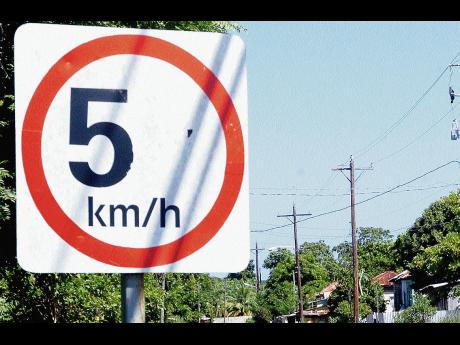Speed in driver's hands - JAA reminds motorists of responsibility
Some motorists are accustomed to the warning, 'Speed Kills', being used as a slogan in road-safety advocacy initiatives.
The World Health Organisation (WHO) has identified speed as a key risk factor in road traffic injuries, influencing both the risk of road traffic crashes and the severity of injuries.
Recent research conducted by the Mona GeoInformatics Institute, which included detailed analysis of more than 70,000 crash data points in Jamaica between 2000 and 2010, revealed that "speeding was the leading cause of fatal crashes over the period, accounting for nearly 23 per cent of fatal crashes".
Duane Ellis, general manager of the Jamaica Automobile Association, said when motorists drive at excessive speeds with no regard for road conditions, "they put themselves, pedestrians and other road users at greater risk of injury and death in the event an accident occurs".
Ellis acknowledged that while the Government and other road-safety stakeholders continue to work at creating and implementing speed-management initiatives, motorists can also play their part. They can do this by reducing their driving speed.
He said that "drivers can take simple steps towards reducing their speed, such as paying close attention to their speedometer, while still carefully watching the road". Ellis noted that "these checks will allow drivers to be constantly aware of just how fast they are going".
Slow down
Another tip is to drive about eight kilometers per hour (kph) below the speed limit. "This will not significantly decrease your travel time and it will reduce the chances of the driver accidentally going over the speed limit," Ellis pointed out.
Ellis advised that drivers can use the cruise control option, where available. Motorists can also prevent the need to speed by simply leaving for their destination early enough so they do not need to rush.
"When motorists do decide to speed, they must ensure that they are not endangering pedestrians or other drivers, and that road conditions are suitable and free of hazards," Ellis added.
Currently, the speed limit on Jamaican roads is 50kph in built-up areas and 80kph on highways, that go up to 110kph in some instances on the toll roads.

